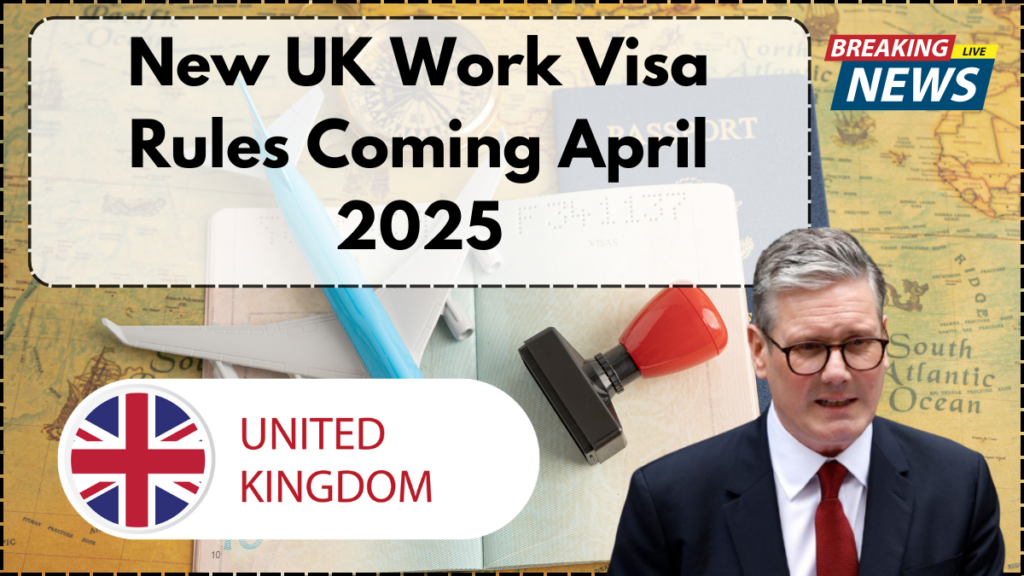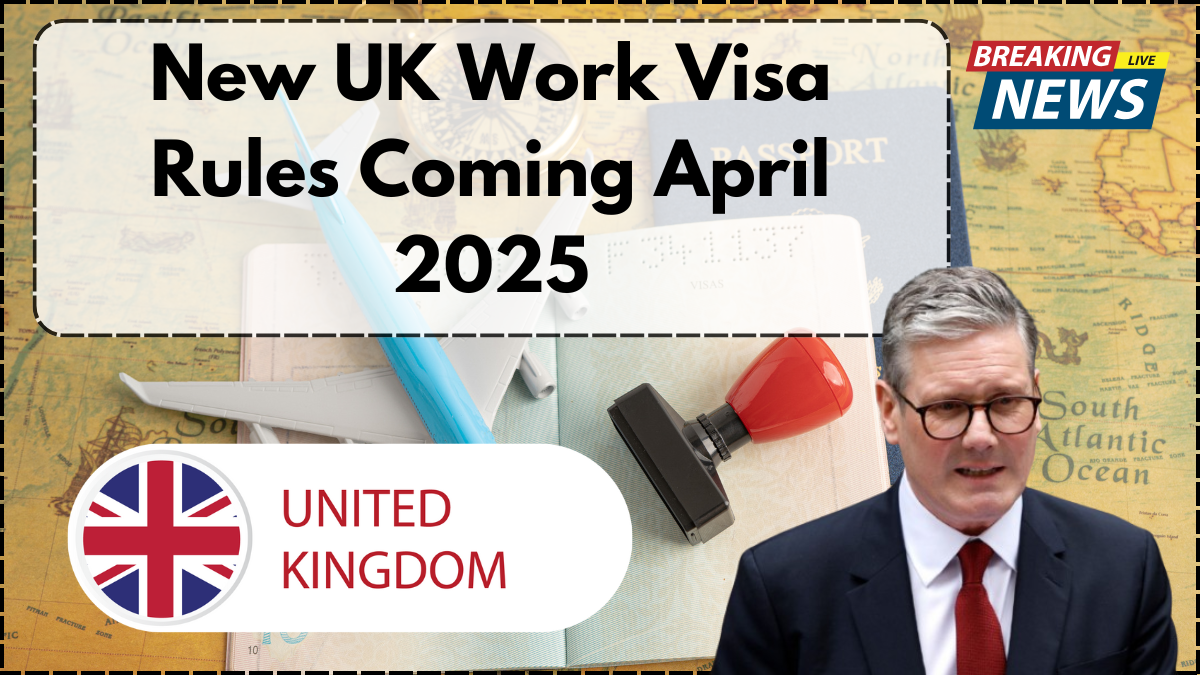The United Kingdom remains one of the top global destinations for skilled professionals seeking new opportunities. As of April 2025, the UK government has introduced pivotal updates to its work visa regulations, significantly altering the way both employers and international applicants navigate the system. These new changes are aimed at increasing efficiency, aligning talent with sector-specific needs, and reinforcing the integrity of the sponsorship process.

Revised Eligibility Criteria for Skilled Worker Visas
The Skilled Worker visa continues to serve as the cornerstone of UK immigration for professionals. However, as of 2025, new eligibility benchmarks are being implemented to ensure only qualified and experienced candidates are granted entry.
- Skills-Based Evaluation: Greater emphasis is now placed on applicants’ professional backgrounds, certifications, and verifiable work experience.
- Sector-Specific Prioritization: The UK government is actively updating priority occupation lists based on current skill shortages, including sectors such as healthcare, technology, renewable energy, and advanced engineering.
- Updated Job Classifications: Expect a revamped list of qualifying job roles, focusing more precisely on industry needs and long-term growth sectors.
Salary Thresholds and Enhanced Sponsorship Requirements
With the evolving nature of the workforce, salary minimums and sponsorship criteria are becoming more rigorous.
| Component | April 2025 Update |
|---|---|
| Minimum Salary Threshold | Increased to reflect inflation and job market demands |
| Priority Occupation Salaries | Adjusted downward to attract talent in critical sectors |
| Sponsorship Licensing | Stricter financial and operational eligibility checks |
| Compliance Measures | Non-compliant employers risk penalties and license revocation |
UK employers must now prove they are offering competitive wages and have legitimate business needs before being allowed to sponsor foreign employees. This policy is designed to ensure that international workers are treated fairly and that local candidates are not sidelined.
Growing Demand Across Key Sectors
As part of its strategic talent acquisition plan, the UK has identified multiple sectors with growing labour demands. These include:
- Technology & Software Development: Start-ups and global tech firms continue to scale, requiring data scientists, software engineers, and cybersecurity experts.
- Healthcare & Life Sciences: NHS and private health services face chronic shortages in nursing, midwifery, and aged care.
- Engineering & Green Energy: Infrastructure and sustainability initiatives are creating fresh demand for civil, electrical, and renewable energy engineers.
These sectors benefit from more accessible pathways and even relaxed visa conditions, giving skilled professionals a greater chance of long-term career development in the UK.
Streamlined Application and Processing Times
Recognizing the importance of efficiency, the UK government has committed to faster visa processing.
- Accelerated Processing: Critical workers in high-demand roles will benefit from shorter processing windows, often within weeks.
- Digital Application Portals: All applications must now be submitted online, with mandatory uploads of education, employment, and identity documentation.
- Document Accuracy: Incomplete or mismatched applications will face immediate rejection, making meticulous preparation essential.
What Job Seekers Must Prepare For
To navigate the updated system successfully, applicants must align their experience with the requirements of the specific role they intend to fill. Steps include:
- Verifying if their occupation falls under a priority list
- Ensuring salary offers meet or exceed new thresholds
- Preparing a complete digital portfolio with updated credentials
Staying informed about sector-specific needs will significantly enhance one’s chances of successful application.
Employer Obligations Under the New Sponsorship Framework
Employers are now central to the immigration process and must:
- Justify their hiring strategy
- Demonstrate the economic need to hire international candidates
- Ensure full compliance with labour standards
Failure to adhere could result in revoked sponsorship rights, potentially disrupting business operations. Companies are encouraged to consult legal experts or immigration advisers regularly to maintain compliance.
Conclusion: Adapting to the Future of UK Work Immigration
The landscape for skilled migration to the UK is evolving rapidly. The April 2025 changes reflect the government’s intent to attract high-calibre global talent while ensuring fair play in the labour market. By understanding these reforms and preparing accordingly, skilled professionals and responsible employers alike can seize new opportunities and contribute to the UK’s thriving economy.
FAQs
What are the main changes in UK Skilled Worker visas in 2025?
The changes include higher salary thresholds, stricter sponsorship requirements for employers, faster processing times, and updated job eligibility lists to reflect sectoral demands.
Can employers still hire from overseas easily?
Employers can continue hiring international workers, but they must now meet enhanced financial and operational criteria to qualify for sponsorship.
Which industries are currently on the priority list?
Technology, healthcare, engineering, renewable energy, and life sciences are top priorities in 2025 due to ongoing skill shortages.
Are visa applications processed faster now?
Yes, especially for applicants in priority sectors. Processing times have been reduced through digitalization and streamlined workflows.
What happens if an employer fails to meet sponsorship rules?
They risk penalties, losing their sponsorship license, and being barred from hiring foreign workers in the future.
For More Information Click Here
Pari is a passionate writer known for captivating stories that blend imagination and reality. Inspired by travel, history, and everyday moments, Pari crafts narratives that resonate deeply with readers.




